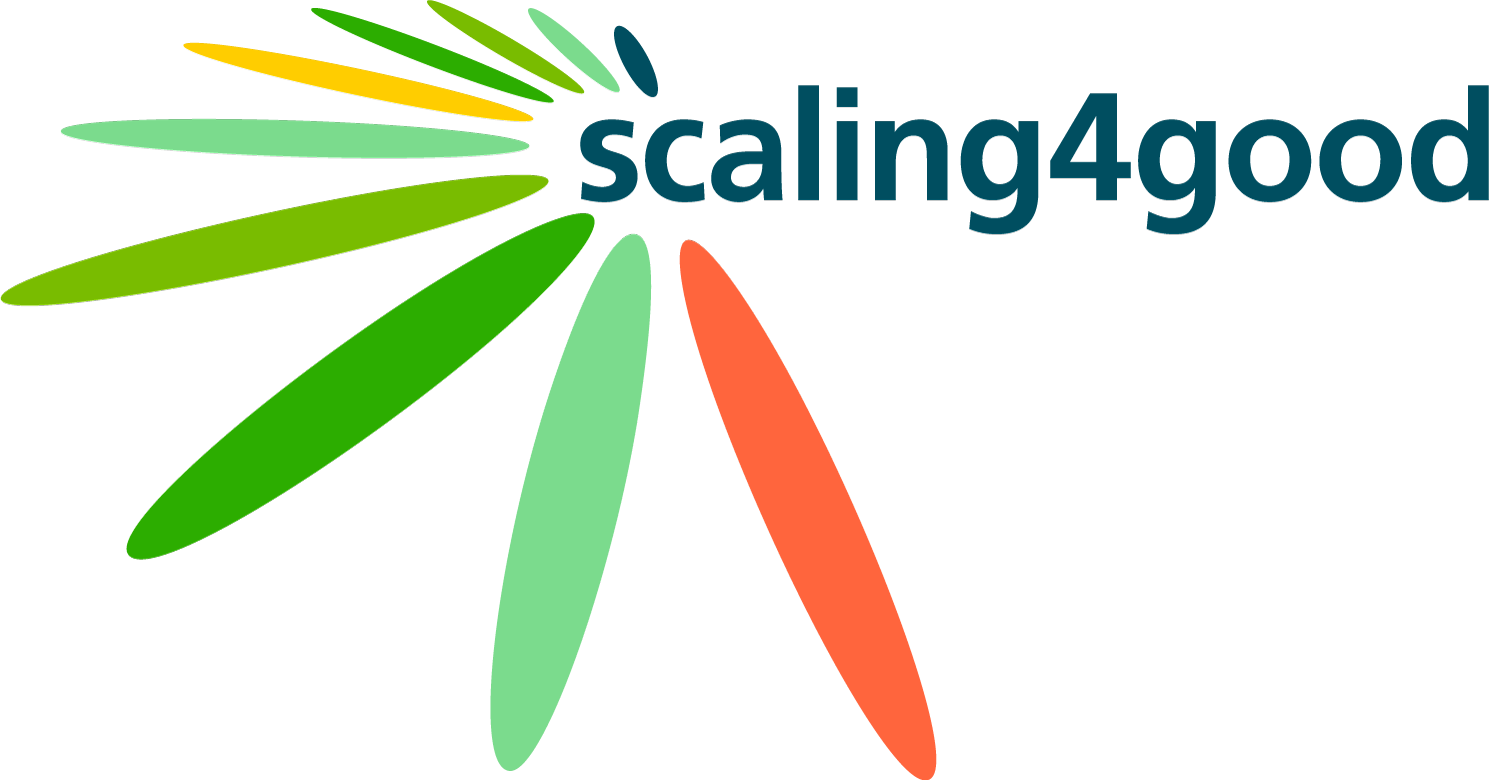In the discourse related to the current grand societal challenges we continuously hear the call for innovation. This is for instance true in all major international conferences addressing climate change or the Sustainable Development Goals where agreement is easily reached to allocate resources for innovation. Innovation is perceived as the pathway to continuous progress and has an underlying promise of both economic growth and increased welfare. Scaling is however often seen as a mere consequence of innovation, a way to ensure diffusion. The nexus between investments that might not pan out (innovation) and expansion based on existing strengths (scaling) is however key.
This is one of the main messages of Johanna Mair and Christian Seelos (1) who presented their work on social innovation at the Impact Hub in an event co-hosted by Scaling4good in Zurich on May 2nd.
Prompted by the Rockefeller foundation Johanna and Christian started looking at the nexus between innovation and scaling in individual organisations. They analysed four successful social organisations in India and Bangladesh to understand the secrets of their impact. Doing this, they developed a framework to analyse how social enterprises scale their activities to reach impact. In their analysis they identified different paths that have each been dependent on the problems they wish to solve.
Scaling solutions to technical problems such as eye cataract in India, as managed by Aravind, requires different skills and approaches than scaling solutions to societal problems such as poverty or inequality. The first case is rather close to the classical company scaling and relies on economic resources, radical increase in productivity (in this case tenfold) and on the acquisition and continuous management of expert knowledge. Addressing societal issues is more complex: it requires changing the values anchored in a society, understanding in which domains these values play a role and then finding concrete solutions to address them. Gram Vikas, a large social movement has tested many different routes to combat inequality in India over the past decades. It has only been successful after having scaled a technical solution (biogas production) and then realising that this was too far from its original purpose. Learning from its earlier failures that biogas solution was then spun off and the movement used its reputation to work on a problem much more connected to inequality: the access to water and sanitation for all.
A very clear lesson emerges from this research: successful social enterprises aim for large impact from the beginning, they identify a large problem that they wish to address. In a way they compare well with the exponential organisations mentioned: they have their own Massive Transformative Purpose! Aiming for big and positive impact from the onset seems to be a pre-requisite for success.
A second learning is that a persistent willingness to learn is essential. “Don’t innovate if you don’t know how to learn.” Innovation is a hectic process, comprising many hick-ups. Without curiosity to understand what works and what does not work, no success is possible. It is also critical to remember that the innovation investment will pay off only if scaling actually occurs. To be successful, organisations need to constantly judge whether the initial investment has been sufficient and has produced enough results to enter the scaling phase. Johanna and Christian have observed many “innovation pathologies” that result from too early or too late decisions.
An important major conclusion is that scaling requires efforts and needs to be clearly separated from innovation. Today, given the urgency of the required transitions (to combat climate change, reach the SDGs for instance), we need more scalers and perhaps less innovators.
Johanna Mair and Christian Seelos’ analysis and framework are descriptive rather than predictive. It is probably the most insightful and original book published on scaling for impact and most certainly triggers interesting thoughts and potentially provide funders a key reasoning to identify and fund organizations with the potential of driving scalable impact.
The event was held at and co-hosted by Impact Hub Zurich.
Link to the book presented: Innovation and Scaling for Impact,
Link to article in SSIR: When innovation goes wrong
(1) Johanna Mair is Professor for Organization, Strategy and Leadership at the Hertie School of Governance. Her research focuses on how novel organisational and institutional arrangements generate economic and social development. Mair is also the Distinguished Fellow at the Stanford Center on Philanthropy and Civil Society and Academic Editor of the Stanford Social Innovation Review. She is a Senior Research Fellow at Harvard Kennedy School and has held visiting positions at Harvard Business School and INSEAD.
Christian Seelos is the Director of Social Innovation Practice at the Harvard Kennedy School, a Research Fellow at the Center on Philanthropy and Civil Society at Stanford University, and the Leo Tindemans Chair of Business Model Innovation at KU Leuven. Previously, he has been the Director of the IESE Platform for Strategy and Sustainability and an Adjunct Professor in the Strategic Management Department at IESE Business School in Barcelona.
Innovation and Scaling for Impact | Book
This book by Johanna Mair and Christian Seelos argues that innovations are activities that lie outside the established knowledge base of organizations. Three dimensions of knowledge—what-knowledge, how-knowledge, and why-knowledge—form the basis of a central framework that they call the “impact-creation logic” (ICL) of an organization. Read more


